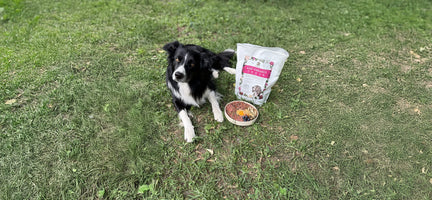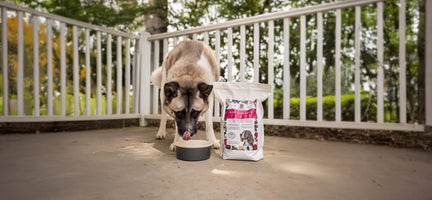Unleashing Canine CounterStories Part 5: (Love) Language is Power
January 27, 2026
-
6 minute read

Hi everyone! Alexis here — I’m the Community and Influencer Manager at Dr. Harvey’s, and I’m lucky enough to work wit...

Bringing home a new puppy is one of life’s greatest joys from those tiny paws, the snuggles, the zoomies, and, yes, e...

At Dr. Harvey’s, we believe in the power of raw feeding and its many benefits for dogs. However, we understand that t...

As the temperatures rise, keeping our companions cool, hydrated, and nourished becomes more important than ever. Just...